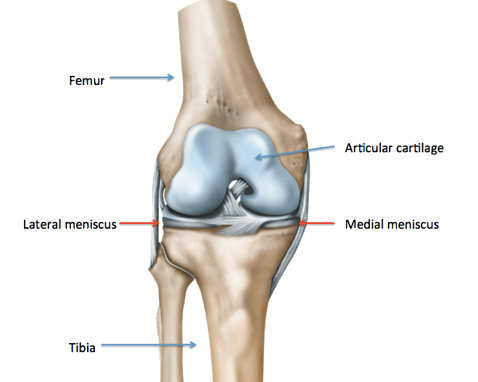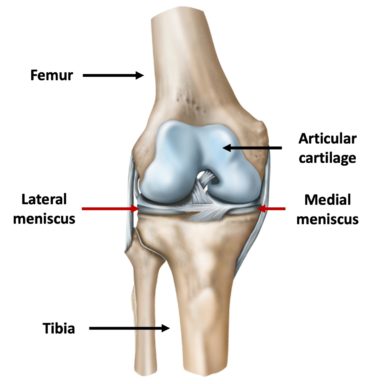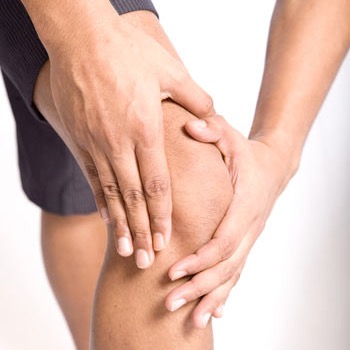Knee pain that is not arthritis
Lots of people come to get help from me with knee pain that is not arthritis. Often this is a torn cartilage in the knee (us doctors call this a meniscus tear). There are really good treatments for this problem and I can usually get people back to excellent levels of sport with simple day-case keyhole surgery.

“Didn't have a great peri and post operative experience with previous knee replacement. This time Mr Willis Owen was keen the experience should be improved and it really was! The anaesthetist and nursing staff were all on board with the plan and made the experience much more bearable. Thank you! Excellent outcome from the surgery. Really pleased with result.
Degenerative meniscus tears
Not all knee pain is arthritis!
Quite often people come to see me with a bad knee thinking that they must be suffering from arthritis and I’m able to give them the good news that it is actually a different problem, with a different prognosis and different treatment options. Most common amongst these is a torn cartilage (us doctors call this a torn meniscus).
About the meniscus
Between the thigh bone and the shin bone there are two rubbery bands of cartilage. These bands cushion the surfaces of the joint and act as shock absorbers. We call these the medial meniscus and lateral meniscus. The medial meniscus is located on the inner side of the knee, and the lateral meniscus is on the outer side . These pieces of cartilage are not to be confused with the smooth articular cartilage that lines the ends of the bones in the joint.
When we are young these menisci are strong, and to tear them takes a significant (and memorable) injury. As we get older however, the menisci get stiffer and more fragile, like perished rubber, and can tear with only a minor injury. By old age, they can be like wet cardboard and may tear without you even knowing why. For this reason, older patients may tear their meniscus without having a very significant injury and it is common to get knee pain ‘out of the blue’. We call this a degenerate meniscal tear.


What does a degenerate meniscal tear feel like?
You will feel a sharp pain either on the inside or less commonly the outside edge of the knee. It is usually worse at the back. It may be tender on the edge when pressed. The knee may, or may not, swell and may be painful to walk on. You may notice sharp pains in certain positions and you can have clicking, locking or giving way of the knee. Twisting can be bad and squatting is usually terrible. The knee may ache at rest or at night time. You may feel a swelling at the back of the knee.
How can a meniscus tear be treated?
If you think you have a torn meniscus it is well worth getting it checked out. It is important to treat the early phase with rest, ice, compression and elevation in order to minimise the bleeding and swelling. You should avoid things that make it worse. Often your body will get used to the tear and will get to fairly good state on its own. This has happened to me so I avoided surgery! If it is going to do that then this will happen in the first 6 weeks (I was lucky). Meniscal tears very rarely heal on their own, so if it is still bad after six weeks then help is often needed. The sooner this is done the better as they can tear even more or develop cysts.
Treatment involves first confirming the diagnosis by listening to your story and then carefully and gently examining you. If it does seem to be a meniscus tear then I will arrange an MRI scan, as this is useful to tell how much of your problems are from a torn meniscus and whether there is any early arthritis or another cause of your problem. Once the diagnosis is certain we will discuss whether you want keyhole surgery to trim the damaged part of the meniscus. This is a bit like filing down a broken fingernail in that it usually feels a lot better quite quickly. This will be followed by a carefully directed graduated physiotherapy program with me and a physio guiding you through your recovery.
“Didn't have a great peri and post operative experience with previous knee replacement. This time Mr Willis Owen was keen the experience should be improved and it really was! The anaesthetist and nursing staff were all on board with the plan and made the experience much more bearable. Thank you! Excellent outcome from the surgery. Really pleased with result.
Can it be mixed with arthritis?
Older patients often have a torn meniscus as well as some early arthritis in the knee and the two can give a mixed picture of symptoms. Usually problems arising for the meniscus come on fairly quickly over a matter of weeks and don’t fully settle down. Arthritis pain gradually builds up over months and years. It takes a smart knee surgeon to work out what the main problem is and give you the correct advice. Be careful who you pick, because treating a knee with arthritis by doing keyhole surgery can make it worse!
The MRI scan will help me identify how much better the knee should be after the surgery. If there is bad arthritis it may be that a knee replacement is needed. If I don’t think I can help you with keyhole surgery I will be very straight about it. If you’ve heard of people who have had keyhole surgery and then just a few months later been told they need a replacement then that is a good sign to avoid that doctor! Sadly this is quite a common story.
Book a consultation